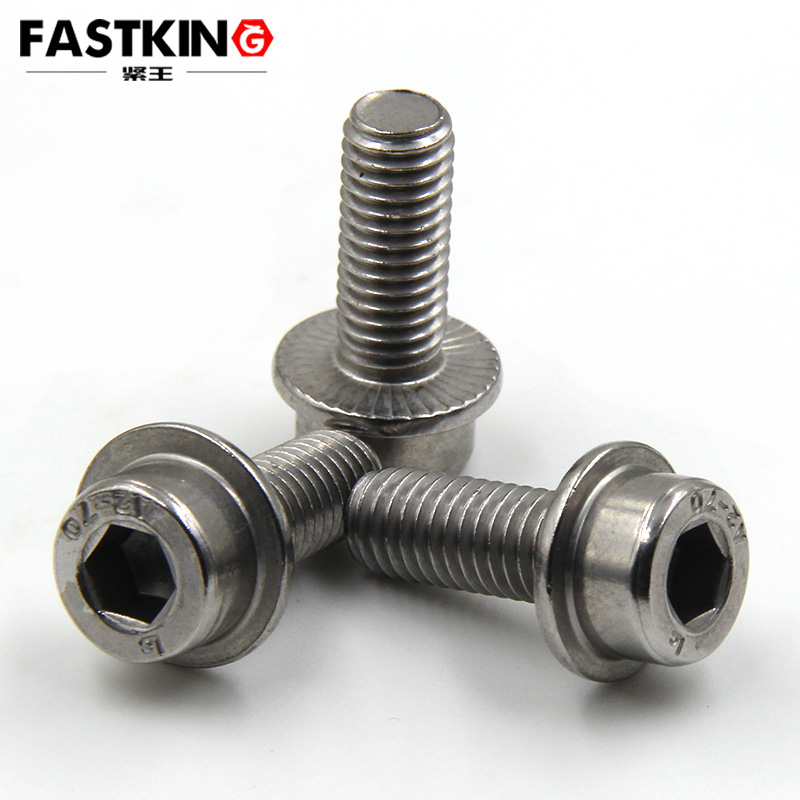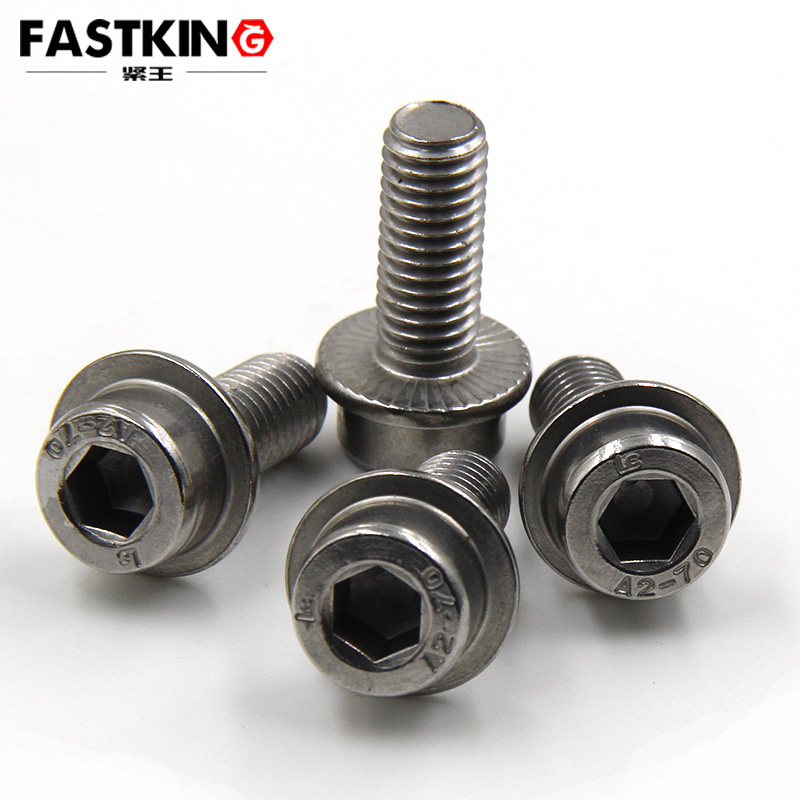Structural Advantages of Hex Socket Head Cap Screws with Flange
The cylindrical head design of hex socket head cap screws with flange allows for effective fastening in limited spaces, unlike traditional hex head screws. This design is particularly suitable for applications with strict space requirements, such as precision instruments and electronic devices. The integrated design of the cylindrical head and flange face ensures sufficient fastening force while minimizing the installation space.
The hex socket design is another highlight of these screws. Compared to traditional Phillips or slotted drives, the hex socket can withstand higher tightening torque, effectively preventing damage caused by screwdriver slippage. This design not only improves installation efficiency but also ensures fastening reliability, especially in applications requiring high torque.

The flange face is the most innovative feature of these screws. The flange face creates a large contact area with the mating surface, effectively distributing the fastening pressure and preventing damage to the connected parts. Additionally, the flange face provides anti-loosening properties, enhancing connection stability. This design is particularly important in vibration-prone environments, significantly reducing the risk of screw loosening.
Analysis of Typical Application Scenarios
In the automotive manufacturing sector, hex socket head cap screws with flange are widely used in critical components such as engines and transmissions. In these applications, the screws must endure high levels of vibration and impact while ensuring long-term reliability. The flange design effectively addresses the issue of traditional screws loosening in automotive applications, while the hex socket facilitates installation and removal in tight spaces.
These screws also excel in machinery assembly. In the assembly of machine tools and construction equipment, high-strength connections are often required in limited spaces. The low-profile design and excellent fastening performance of hex socket head cap screws with flange make them an ideal choice for such applications. Their advantages are even more pronounced in areas requiring frequent disassembly and maintenance.
Electronic device manufacturing is another important application area. As electronic products trend toward thinner and lighter designs, the requirements for fasteners have become more stringent. Hex socket head cap screws with flange not only meet the demanding space requirements of electronic products but also ensure reliable and consistent connections through precise manufacturing processes. In consumer electronics such as smartphones and laptops, these screws have become a standard component.
Proper Usage Methods and Precautions
Selecting the appropriate specifications is essential to ensure screw performance. Factors such as material thickness, strength requirements, and installation space must be considered when choosing the correct length, diameter, and strength grade of the screw. Additionally, the flange diameter must match the hole diameter of the connected parts to ensure the flange face functions effectively.
The choice of installation tools directly affects installation quality. It is recommended to use a calibrated torque wrench with a suitable hex key for installation. During installation, ensure the tool fully engages with the hex socket to avoid damage caused by mismatched tools. For critical applications, torque-controlled tools are recommended to ensure each screw achieves the specified preload.

Maintenance is key to ensuring long-term reliability. Regularly check the tightness of screws, especially those used in vibration-prone environments. For screws requiring disassembly, professional tools should be used to avoid damaging the hex socket. When reusing screws, inspect the thread condition and replace them if necessary.
The widespread use of hex socket head cap screws with flange reflects the increasing performance demands of modern industry for fasteners. As manufacturing technology advances, the performance of these screws will continue to improve, providing more reliable connection solutions for industrial manufacturing. In the future, with the application of new materials and processes, hex socket head cap screws with flange will undoubtedly play an even greater role in broader fields, driving industrial manufacturing toward greater efficiency and reliability.
